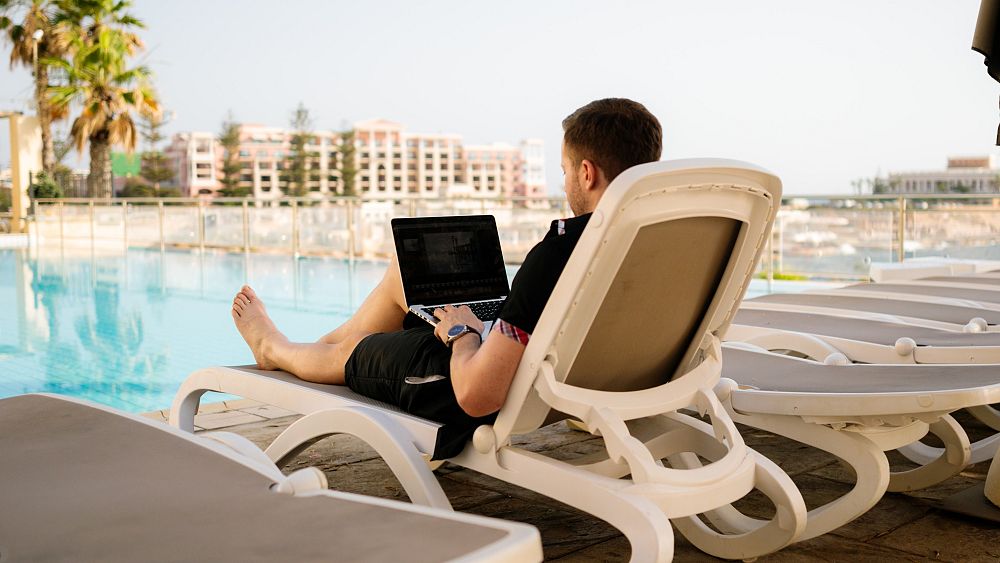
Moving abroad has become even easier post-pandemic thanks to the rise of remote working. Many European countries have introduced digital nomad visas to help expats with residency and tax requirements.
But moving to another country still comes with lots of challenges. One of the most important steps is to find a location that suits your lifestyle and needs.
InterNations – a global community for people who live and work abroad – carries out expat surveys. These can help would-be expats understand what to expect from different countries.
Using data from their Expat Insider 2022 survey, InterNations has compiled a ranking of the best and worst destinations for getting started as an expat.
Which European countries are easiest for expats to get started?
Last year’sInterNations report analysed 52 expat destinations around the world and ranked them according to the quality of life for expats.
As part of the survey, their Expat Essentials Index reveals the locations that make life abroad easiest and those that make life most challenging for foreign residents.
The index included data on bureaucracy, digital life and housing.
The top three destinations – Bahrain, UAE and Singapore – offer easy communication with the lack of a language barrier, while also posing minimal bureaucratic issues.
On the other hand, in the countries at the bottom of the ranking, expats struggle with issues like the local language and a lack of digitalisation.
Estonia is the best European country for expats to settle in
Estonia comes in fourth in the InterNations ranking, making it the top European country.
Expats say they find it easy to get started in the eastern European nation thanks to easy administration and bureaucracy.
Eight out of ten of those surveyed found it easy to obtain their visa compared to a worldwide average of 56 per cent.
Expats have few difficulties with local authorities and Estonia ranks top out of all 52 destinations for the availability of online government services.
“I really like how easy it is to live here,” says one British expat. “Services are usually (though not always) free of bureaucratic difficulties and demand less paperwork than in the UK.”
Participants of the survey also appreciate Estonia’s cashless payment options and the ease of setting up high-speed internet at home.
The country falls in the rankings for language and housing, however, with 61 per cent describing the language as hard to learn.
Malta frustrates expats with poor digital infrastructure and administration
Unfortunately, no European countries other than Estonia make it into the top ten. Several European nations rank in the bottom ten, however.
Expats in Malta struggle with bureaucracy, with the country coming in last worldwide for administration.
Nearly three in five expats find it difficult to deal with Malta’s local authorities.
“I dislike the red tape; for example, the difficulties in getting a driver’s licence,” says a British expat. “Also, the never-ending paperwork to obtain a bank account!”
Malta ends up in last place for the ease of opening a local bank account and narrowly escapes another bottom 10 ranking when it comes to setting up high-speed internet access at home.
On a positive note, almost two thirds of expats find it easy to live there without speaking the local language as English is widely used.
France’s expats struggle with the language and administration
One of the biggest challenges for expats in France is the language, according to the InterNations survey.
Almost double the number of people found it difficult to live in France without speaking the local language compared to the global average.
“French is REALLY difficult, even after all these years, and without it you are lost!” says one Greek expat.
Some other major challenges for expats are administration: more than half say it is not easy to deal with the local authorities and 32 per cent find it hard to open a local bank account.
On the other hand, around nine in ten expats rate France’s cashless payment options positively and agree they have unrestricted access to online services, such as social media.
Expats in Italy hate the bureaucracy
Despite being a popular destination for expats, Italy ranks as one of the worst countries for getting started abroad.
The country performed particularly badly in the administration category: over two in three expats say that it is difficult to deal with the local bureaucracy.
Italy also ranks in the bottom 10 for the ease of opening a local bank account and obtaining a visa.
“The bureaucracy here is extremely burdensome to the point of ridiculous, in almost all aspects of life from getting a visa to getting a driver’s licence and beyond,” says a US expat.
About two in five of those surveyed are unhappy with the availability of administrative services online and another 16 per cent struggle with obtaining high-speed internet access at home.
Germany is the hardest place to get started as an expat
When starting out in Germany, expats face many frustrating barriers.
The country ends up among the bottom 10 in three out of four subcategories: housing, digital life and language.
Expats report that housing in Germany is both hard to afford and to find. “It may take up to three months to find even a temporary accommodation,” says an expat from Poland.
Expats do not fare much better when it comes to language with 46 per cent saying it is difficult to live in Germany without speaking the local language.
Germany’s lack of digitalisation is another major issue and 24 per cent of expats find it hard to get high-speed internet access at home, while 27 per cent are frustrated by the lack of cashless payment options.
Although the country does a little better in the administration category, 52 per cent of those surveyed still find it difficult to deal with the local authorities.
“I really hate German bureaucracy,” says one expat from the UK. “Especially the fact that nothing is digitised! It takes forever to get in touch with any of the local government offices to discuss residence permits and the like.”


